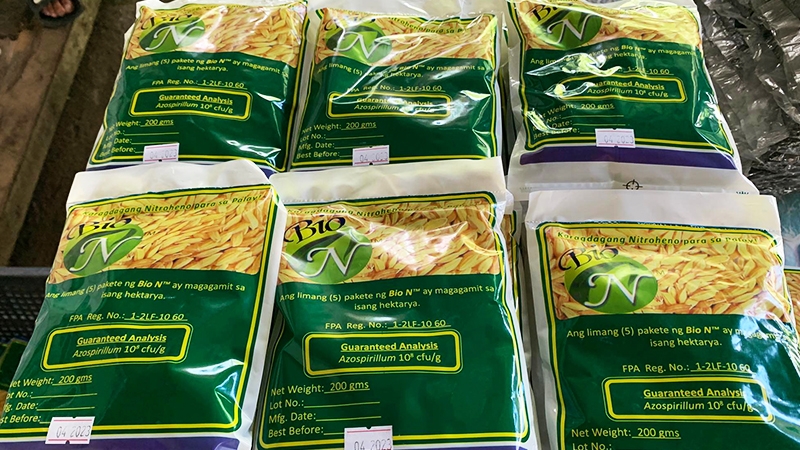DILIMAN, Quezon City - The latest episode of the teleradyo program, “Agri Asenso”, reintroduces the use of Bio-N fertilizer as a cheaper alternative for urea or inorganic fertilizers in rice farming.

This program, produced by the Agricultural Training Institute (ATI) and DZRH, discussed the basic composition, application methods, and advantages of using this biological technology with guest expert, Valentino Perdido, National Rice Program Consultant of the Department of Agriculture (DA).
During the episode, Perdido explained that Bio-N fertilizers are microbial inoculant containing a nitrogen-fixing bacteria called Azospirillum, which are commonly found and exists in symbiosis with tall grasses or talahib. The said bacteria is capable of transforming atmospheric nitrogen into available forms necessary for plant growth.
Developed by the National Institute of Molecular Biology and Biotechnology of the University of the Philippines Los Baños (UPLB-BIOTECH), these biological fertilizers, according to the guest expert, were initially introduced in 2004. Currently, there are available strains for rice, corn, and high-value crops.
The DA consultant believes that the utilization of Bio-N fertilizers may lessen the production cost of rice farmers.
“Now, amid the rising prices of urea, we need to reintroduce and promote the use of Bio-N fertilizers,” he said.
To give the viewers and listeners an idea on its cost-efficiency, he furthered that “five packs of Bio-N fertilizers, at Php100 per pack, can replace two sacks of urea, which cost around Php2,000 each.”
When asked about how to get these ready-to-use fertilizers, Perdido talked about the DA’s pilot and ongoing program, in partnership with UPLB-BIOTECH, on the distribution of these nitrogen-fixing biological fertilizers in selected rice areas.
At the end of the interview, he mentioned that rice farmers may coordinate with their respective municipal or provincial agriculturists to avail themselves of these free Bio-N fertilizers, as well as other assistance and services provided by DA.
The episode, hosted by ATI OIC-Assistant Director Antonieta Arceo and DZRH broadcaster Henry Uri, was aired last June 25 via the program implementers’ social media pages. This is available for viewing at https://fb.watch/dZ1tnUwoDx/.





